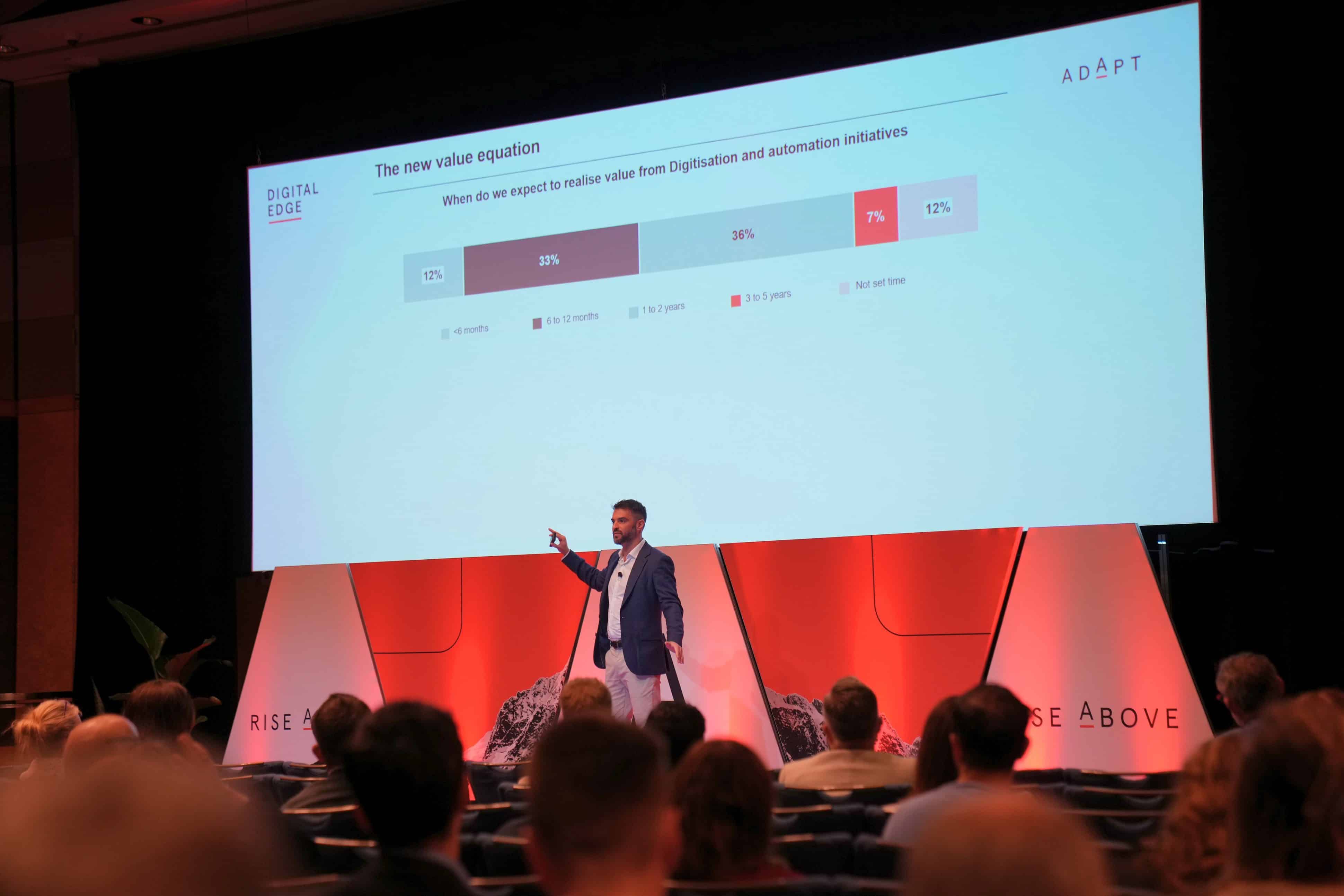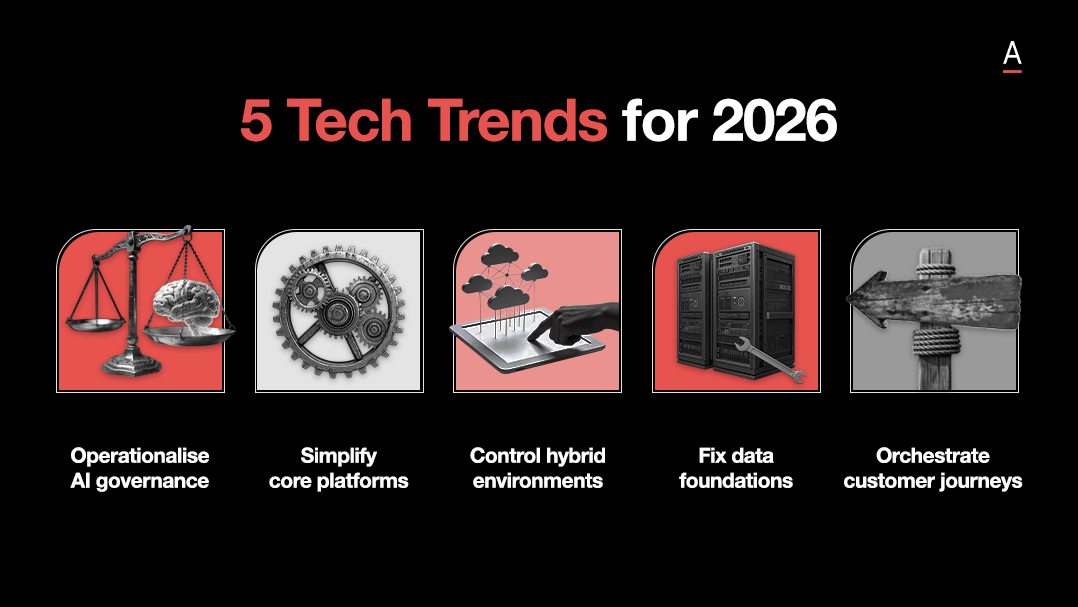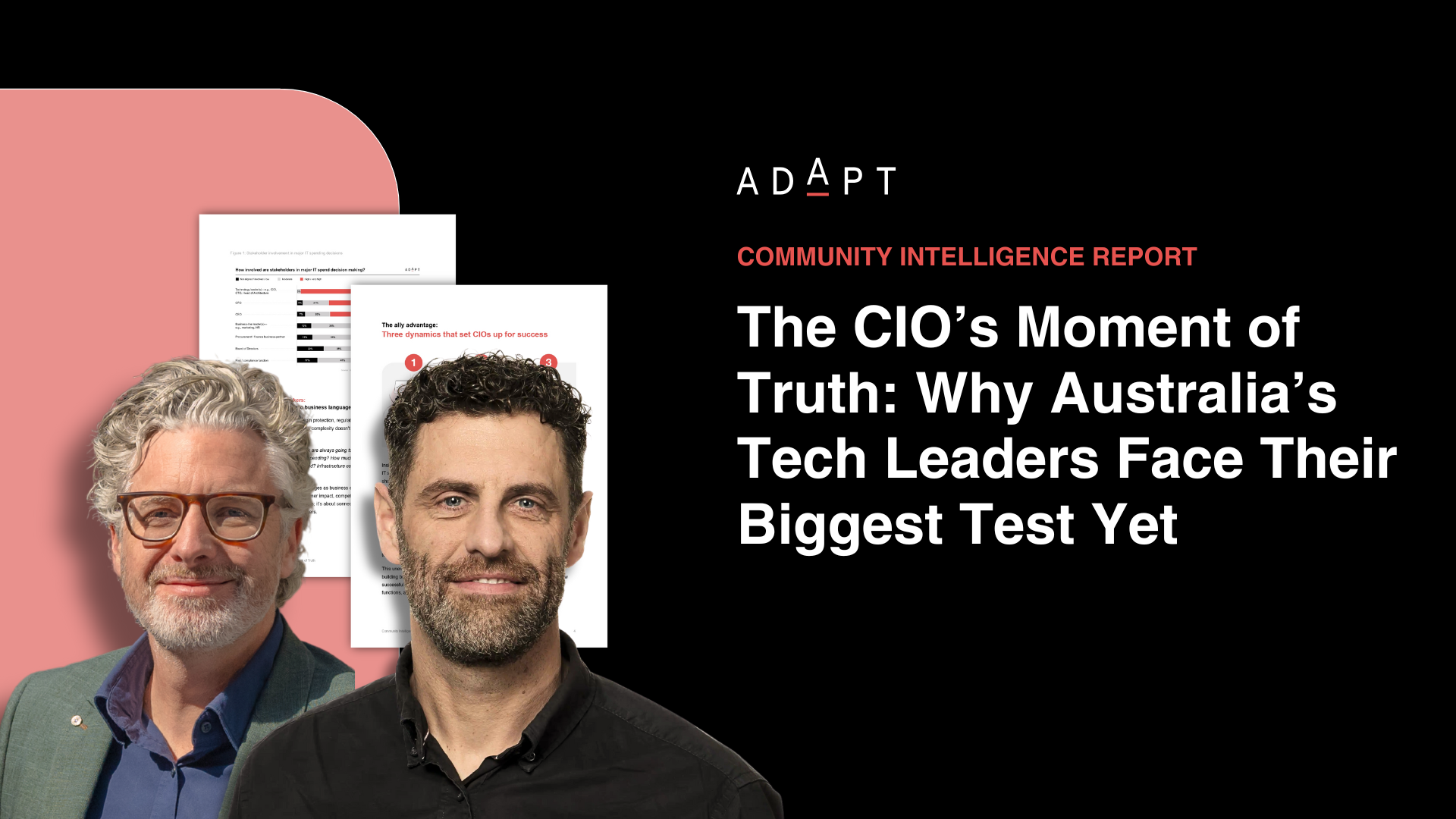In his Digital Edge presentation, Gabby Fredkin – Head of Analytics & Insights at ADAPT, challenged how A/NZ enterprises define transformation and value.
Reflecting on a decade of tracking digital transformation, he observes that while the global corporate landscape has changed dramatically, today’s dominant U.S. firms like Google and Amazon did not exist in the 1980s.
Australia remains largely unchanged, still led by legacy giants like BHP and Westpac.
Gabby argues that traditional Australian institutions were built for stability, not agility.
Citing John Hagel, he notes they are designed to “avoid risk and resist change”.
He critiques the term “digital transformation” for implying that technology alone drives change.
In practice, transformation is frequently stalled by human resistance, conflicting priorities, and low adoption rates.
Looking at what separates top performers, Gabby identifies three essential traits: redefining how they measure value, prioritising people and change management, and investing in data maturity to enable AI-readiness.
Since the launch of ChatGPT, generative AI has dominated IT agendas.
CIO investment in GenAI rose from 50% in 2023 to 70% in 2024, and AI now consumes 4% of the average IT budget.
CFOs anticipate a further 7% increase in AI spending, largely at the cost of traditional R&D. This raises a critical question: is AI accelerating innovation or merely replacing it?
Expectations around value capture are also shifting.
45% of organisations now expect returns within a year, enabled by a move from rigid, project-based initiatives to iterative, product-based delivery models.
Despite these shifts, Australia is not moving fast enough.
More than half of organisations say they need less than a 10% budget uplift to progress transformation, and 32% need no uplift at all.
Yet CIOs’ top priorities, such as ERP and CRM modernisation, are inherently long-term efforts.
Meanwhile, with 40% of tech investment underused, CFOs are tightening governance, slowing approvals and reducing risk appetite.
Progress has stalled.
Respondents report digital transformation is only 46% complete on average, down from 50% the year prior.
But this does not signal regression; rather, it reflects how quickly technology evolves, rendering current systems legacy almost overnight.
To keep pace, organisations must shift from transformation as an endpoint to a mindset of continuous iteration.
Key takeaways:
- Transformation must be continuous and incremental – Leading organisations are abandoning large, one-off projects in favour of smaller, iterative initiatives that deliver measurable value quickly. Today, 45% expect outcomes within 12 months.
- AI adoption is accelerating, but innovation risk is real – GenAI now accounts for 4% of IT budgets, up from 50% to 70% adoption in a year. But CFOs report a 7% drop in R&D, prompting questions about whether AI is advancing or undermining innovation.
- Australia’s digital maturity is stalling – Despite low budget requirements, transformation is stuck at 46% completion. Long ERP cycles, legacy drag and increased CFO oversight are slowing momentum even as tech evolution speeds up.





























